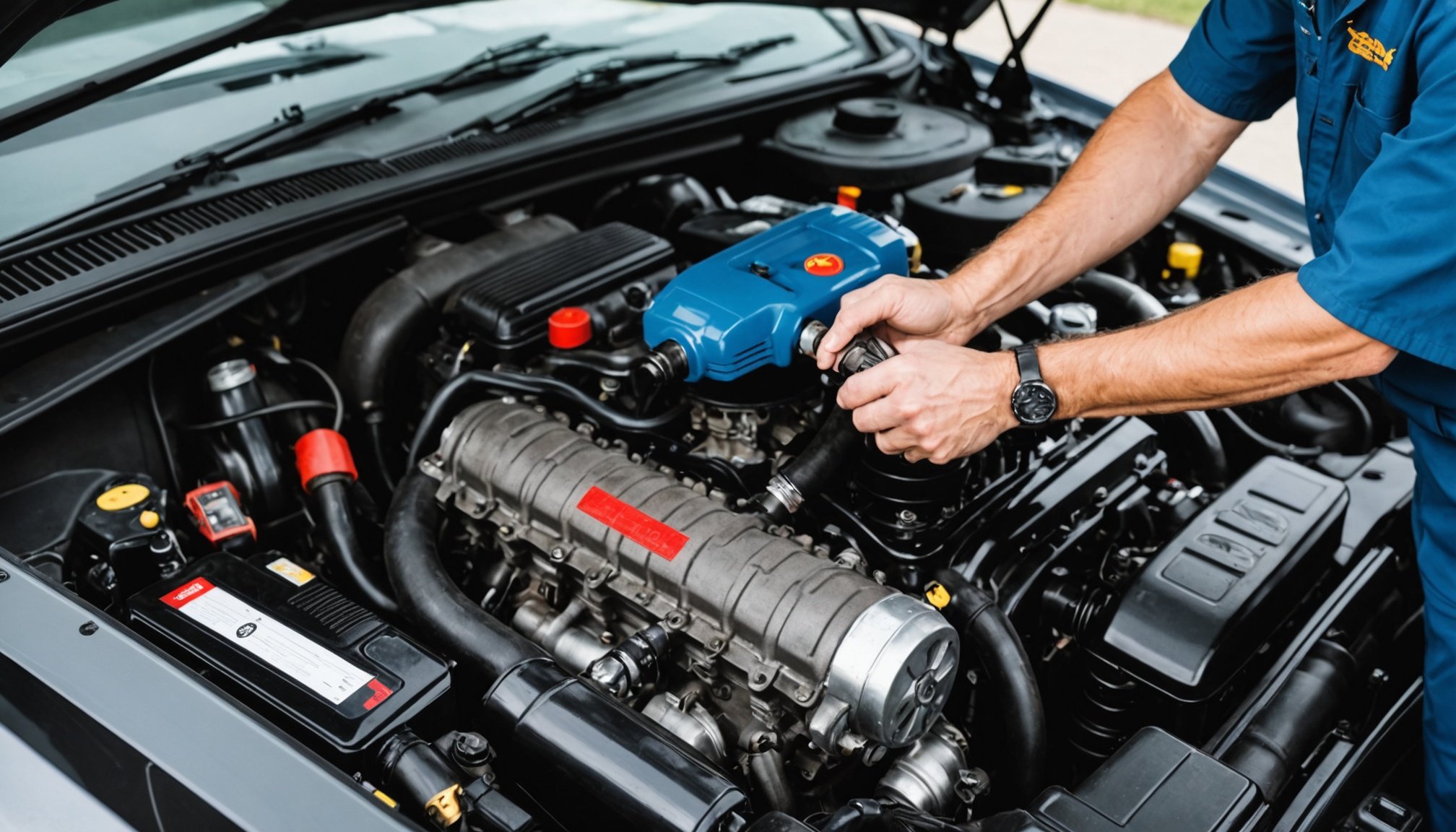Caring for your vehicle’s engine is essential for ensuring its longevity and optimal performance. In today’s fast-paced world, where driving is an integral part of daily life, keeping your engine in top shape requires vigilance and routine maintenance. Understanding the various aspects involved in maintaining the engine not only saves time and money but also enhances your overall driving experience. This article delves into the most effective strategies to maintain your vehicle’s engine and prolong its life, equipped with insights from automotive professionals.
Regular Oil Changes: The Lifeblood of Your Engine
Oil acts as the lubricant for your vehicle’s moving parts, reducing wear and tear and ensuring smooth operation. Over time, engine oil collects dirt and debris, leading to reduced efficiency and potential engine damage if not replaced regularly.
Also to read : How can you enhance your vehicle’s resale value when selling it?
Understanding Oil Types and Their Roles
- Conventional Oil: Suitable for older vehicles and those with less demanding driving habits.
- Synthetic Oil: Offers superior protection, especially for high-performance engines.
- High-Mileage Oil: Designed for vehicles with over 75,000 miles, helping reduce oil consumption and leaks.
Frequency and Process of Oil Changes
- Check your vehicle’s manual for recommended oil change intervals, usually every 3,000 to 5,000 miles.
- Regularly inspect the oil filter during changes, ensuring it is replaced as needed.
- Conduct a thorough check of the oil level and quality between changes to prevent any surprises.
Overall, prioritizing timely oil changes is paramount for maintaining engine health and prolonging vehicle lifespan.
Ensuring Proper Air and Fuel Filtration
The engine‘s performance is greatly impacted by the quality of air and fuel it receives. Proper filtration ensures that your engine operates efficiently, free from harmful particulates.
Additional reading : How can you improve your driving skills to enhance safety and efficiency?
The Role of Air Filters
- Air filters prevent contaminants from entering the engine, maintaining clean airflow.
- A clogged filter can reduce fuel efficiency and lead to more significant engine issues.
- Replace air filters regularly, particularly if driving in dusty or polluted environments.
Fuel Filters and Their Importance
- A fuel filter screens out dirt and rust particles from the fuel, safeguarding the engine.
- Regular check and replacement are crucial for preventing engine stalling and maintaining fuel efficiency.
Recognizing Signs of Filter Problems
- Difficulty in starting the vehicle or misfiring engine.
- Noticeable reduction in driving power and unexpected fuel consumption spikes.
Keeping filters in top condition not only enhances engine performance but also reduces the risk of costly repairs.
Tire and Transmission Maintenance: The Unsung Heroes
While often overlooked, tire and transmission maintenance play crucial roles in supporting engine health and overall vehicle performance.
Tire Care for Optimal Performance
- Regularly check tire pressure to ensure safety and optimal driving conditions.
- Rotate tires every 5,000 to 7,000 miles to promote even wear and extend their lifespan.
- Align and balance tires to prevent excessive wear and improve fuel economy.
Transmission: A Vital Component
- The transmission is key to transferring power from the engine to the wheels.
- Low or burnt transmission fluid can lead to significant damage over time.
- Schedule regular transmission service and fluid changes, especially if towing or in urban traffic.
Through attentive tire and transmission care, your vehicle will benefit from improved performance, fuel efficiency, and longevity.
Routine Inspections and Prompt Repairs
A proactive approach to vehicle maintenance involves regular inspections and addressing issues before they escalate into major problems.
The Importance of Routine Checks
- Conduct regular checks on engine components, including belts and hoses, to identify wear early.
- Inspect spark plugs and ignition systems to ensure efficient engine start-up and operation.
- Utilize diagnostic tools for comprehensive engine health assessments.
Timely Repairs: A Stitch in Time
- Ignoring minor issues can lead to costly repairs and potential breakdowns.
- Promptly address oil leaks, strange noises, or other warning signs.
- Seek professional assistance for complex engine repairs to avoid exacerbating problems.
By embracing routine inspections and timely repairs, you mitigate risks and maintain the engine‘s longevity and reliability.
Ensuring the longevity of your vehicle’s engine is an intricate process that demands attention to detail and a commitment to regular maintenance. Adopting these strategies not only safeguards your investment but also enhances your driving experience. From routine oil changes to vigilant filter maintenance and timely repairs, each step serves as a building block towards a healthier engine. In doing so, you not only improve your vehicle’s performance but also contribute to its long-term viability, making each journey smoother and more enjoyable. Regular attention and care ensure that your vehicle will serve you faithfully for years to come, embodying reliability and efficiency on every road you travel.











